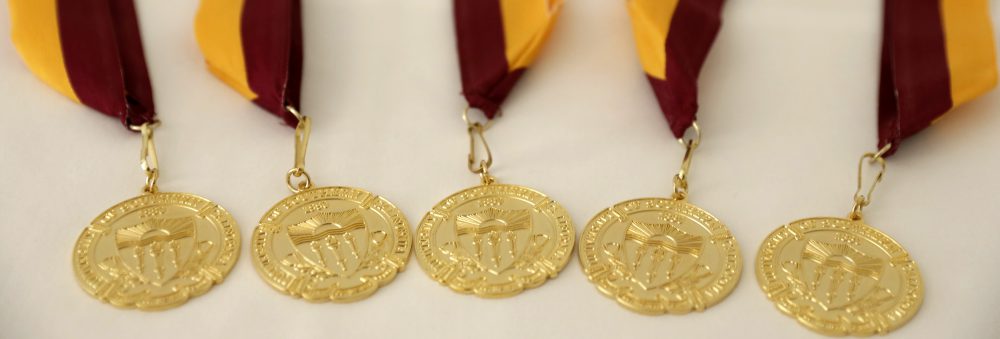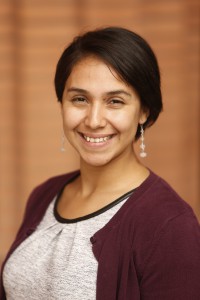by Adam Feinman
Teri Juarez is working on her Ph.D. in Mechanical Engineering. She’s working with Andrea Hodge on the development of lighter, stronger metals. She was awarded the Department of Defense’s NDSEG fellowship in 2013. She was kind enough to share her experiences and advice with us.
AF: How did you find out about the fellowships you applied for?
TJ: I went to the info sessions the Graduate School and Viterbi were holding, but I also had friends who started grad school before I did who told me about them. The big fellowships like NSF and NDSEG are well-known.
AF: How did you go about preparing your applications?
TJ: The NSF fellowship is more complex, so I started by putting that application together first. It was a little scary, because you have to write a whole proposal for a research project in a field that you’re new to. You have to do a lot of background work to be able to do it well, so you have to get started as early as possible!
AF: What did your background work involve?
TJ: A ton of reading, but also lots of self-reflection. Understanding where you came from, where you’re going. How you want to develop professionally.
AF: How did you go about getting your letters of reference?
TJ: I stuck with the same people who wrote my letters for my graduate school application. They’re all local, and I believe in a personal touch when asking favors, so I took each of them out for coffee and asked them in person.
AF: How had you selected these writers originally?
TJ: It’s important to get your letters from people who know you in a professional capacity.
Getting letters from people that like you and can say you’re a wonderful person but who can’t say anything about your ability to get the job done isn’t going to help.
AF: What did you gain out of the application process itself?
TJ: I learned how to write a research proposal. It’s a very technical form of writing, it was very new to me. I also was able to use this experience as a starting point for my relationship with my graduate advisor. She helped me develop a research plan, understand the technical aspects, and revise my applications. It was scary to send her my first draft! But I learned how to speak with advisors and how to develop and write up a research project.
AF: Do you have any fellowship-specific advice for the applications?
TJ: I didn’t win the NSF fellowship, but the people at NSF who review the applications provide feedback. The NSF is more personal, so it’s good to use “I” instead of “we”. For both applications you really have to understand how your work can benefit society. The NSF’s “Broader Impacts” section really trips up a lot of people; you can’t underestimate its importance or difficulty. You should also remember that even if you don’t receive one of these fellowships in your first year of graduate school, most second-year students can also apply, so you’ll have a chance to try again and incorporate the feedback you get from the NSF. (The NDSEG application provides no feedback.)
AF: What have your fellowships contributed to your graduate school experience?
TJ: I have my stipend, tuition, and fees covered for three years. When you aren’t dependent on a lab or TAships for funding, you have a lot more time do your own work. TAships really take up a lot of time, and when your advisor doesn’t have to fund you, there’s more lab money available for other grad students or for the actual materials you need to do your own work. Lab funding availability is up and down, so having a long-term fellowship shields you from that.
AF: Are you going to apply for more fellowships?
TJ: Yeah! Winning fellowships shows that you are a fundable researcher, and the more things you win, the better you look. They’ll be more willing to issue grants to a reputable person than someone with no evidence of being able to get funding and do research.

